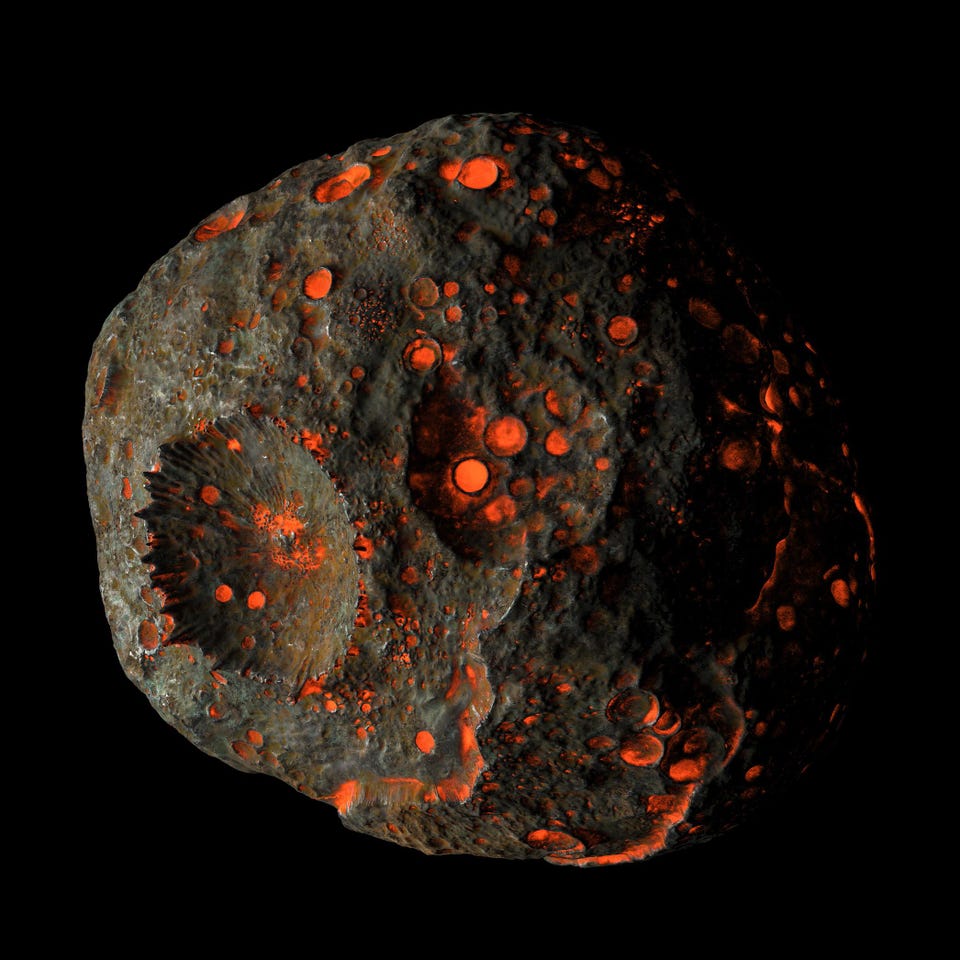Science Oldest Known Volcanic Rock Predates Earth’s Formation David Bressan Contributor Opinions expressed by Forbes Contributors are their own. I deal with the rocky road to our modern understanding of earth New! Follow this author to improve your content experience. Got it! Aug 1, 2022, 06:47am EDT | New! Click on the conversation bubble to join the conversation Got it! Share to Facebook Share to Twitter Share to Linkedin In the early phases of our solar system’s formation, volcanic activity shapes the surface of an .
. . [+] asteroid.
getty With its greenish exterior and brownish interior, Erg Chech 002 (EC 002) might not appear extraordinary at first glance, but it is the oldest known volcanic rock on Earth and in our solar system. This meteorite was discovered in May 2020 by meteor hunters in the Erg Chech region of the Algerian Sahara desert. Fragment of Erg Chech 002 meteorite.
A. Irving/Meteoritical Bulletin Database Looking at the decay rate of manganese and chromium, two research teams dated the meteorite at 4. 5650 to 4.
5666 billion years. The rock formed just 700,000 years after the formation of our solar system, predating Earth’s formation by 20 million years. MORE FOR YOU New Research Finds A Connection Between Domestic Violence And These Two Personality Disorders This Scientist Helps Andean Forests And Ecuador’s Women In STEM Exceptional Fossil Preservation Suggests That Discovering Dinosaur DNA May Not Be Impossible Of the roughly 65,000 meteorites so far documented on Earth, only around 4,000 contain what is known as differentiated matter.
This means they came from celestial bodies large enough to have experienced magmatic activity. Unlike other meteorites dating back to the early phases of our solar system, with a basaltic, silica-poor (showing low SiO 2 levels) composition likely formed on a larger planetary body, EC 002 shows an andesitic, silica-rich composition. On Earth, andesite is a rock formed during volcanic eruptions.
EC 002 likely formed in a volcanic eruption on a smaller asteroid. Heated up by the radioactive decay of isotopes like aluminium 26, the asteroid experienced partial melting of its inner homogenous matrix. As a result, silicon became concentrated in pockets of molten rock.
The silica-rich magma then migrated to the asteroids’ surface, cooling down and solidifying to form a crust of volcanic rocks. Almost nothing survives of those early differentiated asteroids, as they went on to form the building blocks of larger bodies or planets or were simply destroyed. EC 002 was likely ejected into space during an impact, avoiding a similar fate.
The fragment traveled for the next four-and-half-billions of years the void, finally crossing Earth’s orbit. Then, eventually, it impacted the ground just a few centuries ago. The paper ” Radiogenic chromium isotope evidence for the earliest planetary volcanism and crust formation in the Solar system ” is published in Monthly Notices of the Royal Astronomical Society (2022).
David Bressan Editorial Standards Print Reprints & Permissions.
From: forbes
URL: https://www.forbes.com/sites/davidbressan/2022/08/01/oldest-known-volcanic-rock-predates-earths-formation/
